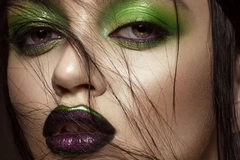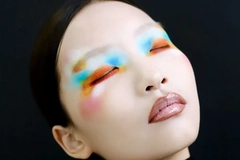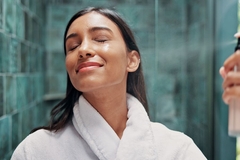Ipsy reframes beauty as a “sandbox for play” with new campaign
Key takeaways
- Ipsy’s I Play Beauty campaign challenges the perception of makeup and skin care as superficial.
- The campaign redefines beauty as a creative hobby rather than a routine.
- According to Ipsy’s research, seven million beauty consumers treat beauty as play.

Ipsy has launched a beauty campaign, I Play Beauty, framing beauty product use as a creative hobby rather than a routine.
I Play Beauty challenges the perception of makeup and skin care as superficial. Through its campaign, the beauty product subscription service positions cosmetics as a space for connection, exploration, and self-expression.
The launch builds on Ipsy’s research of Gen Z and millennial audiences, which revealed that over seven million beauty-first consumers already treat beauty as play. Ipsy aims to elevate these voices by honoring an overlooked community of hobbyists and encouraging others to embrace beauty in the same way.
Personal Care Insights speaks with Stacey Politi, chief marketing officer at Ipsy, about how the campaign aims to reframe beauty in a way that resonates with beauty consumers and the broader public.

“At Ipsy, we’ve always believed that beauty is an opportunity for creative self-expression and a sandbox for play. I Play Beauty was created to capture this …and to validate beauty hobbyists everywhere,” says Politi.
Challenging social stigma
The campaign wants to push back against the long-standing stigma surrounding beauty.
“Beauty has historically been dismissed as superficial and framed as a way to impress, conceal, or conform. These stereotypes are deeply rooted in our larger culture, but, for millions of people, beauty is actually a source of joy, creativity, and self-expression,” Politi notes.
.jpg) The campaign redefines beauty as a creative hobby rather than a routine.“I Play Beauty is our way of changing the narrative… Most importantly, beauty is not something we do for others, but for ourselves.”
The campaign redefines beauty as a creative hobby rather than a routine.“I Play Beauty is our way of changing the narrative… Most importantly, beauty is not something we do for others, but for ourselves.”
Media representation
The campaign features a hero film with influencers and beauty enthusiasts.
“Each creator featured in the campaign is themself a beauty hobbyist with a unique style, which was essential to making the campaign feel authentic and represent the diversity of the community,” Politi explains.
“It was important for us to show up with this campaign as a way to shift the conversation to show that beauty isn’t something to achieve, but something to simply enjoy.”
Generation of change
I Play Beauty comes as younger audiences drive many of today’s cultural conversations.
Politi notes that the campaign spotlights the cultural shift in how people think about identity and self-expression, specifically through the lens of beauty.
“Today, people are redefining beauty on their own terms, as a way to explore, experiment, and celebrate individuality, and Gen Z and millennial audiences are certainly driving that shift,” she says.
.jpg) According to Ipsy’s research, seven million beauty consumers treat beauty as play.Beyond Ipsy’s research, Gen Z is reshaping the beauty industry in noticeable ways.
According to Ipsy’s research, seven million beauty consumers treat beauty as play.Beyond Ipsy’s research, Gen Z is reshaping the beauty industry in noticeable ways.
A recent Credit Karma survey found that nearly a quarter of UK Gen Z adults see skin care and beauty as essential expenses, ranking in the same tier as basic living costs such as food and housing. The survey underscores how the generation treats personal care as an extension of their well-being.
Revieve CEO Sampo Parkkinen previously told us that Gen Z is also pushing brands to evolve with their values. The generation demands authenticity, transparency, and inclusivity — supporting labels that align with their ethics.
According to Parkkinen, Gen Z beauty is not about products but identity, connection, and shared values.
Politi concludes: “We hope people feel seen, recognized, and inspired, and that over time, we start to feel a real shift in how beauty is talked about.”













